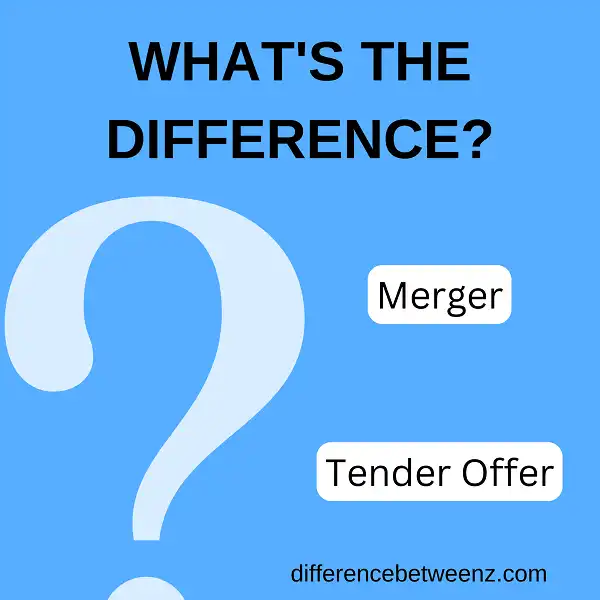Understanding the differences between mergers and tender offers can be confusing for many people. In today’s blog post, we’ll be taking a look at what these two different types of corporate transactions involve, their similarities and differences, why they are used in the first place, and how to identify which would benefit you more if you were considering either one as an investor or business owner. By understanding the difference between merger and tender offer dealings, you will become better equipped to find opportunities that might fit your personal investing goals.
What is Merger?
- A merger is an amalgamation of two or more companies into a single company. Mergers can be a transformative tool for businesses and the economy, enabling fast-track growth and new business opportunities.
- Mergers combine resources, such as capital, talent, technologies, and brand recognition, allowing new synergies to emerge that would not have been feasible before the merger. Mergers are also often made to reach economies of scale across different sectors or markets.
- Mergers can result in cost reductions through the rationalization of operations and personnel as well as generate synergy through using combined information systems and data to fuel further applications. Mergers can provide both strategic advantages and increased competitiveness for businesses involved in them, positioning them for future growth.
What is Tender Offer?
A Tender Offer is an offer to purchase a company’s shares of stock, usually at a premium over the prevailing market price. Tender offers provide a pathway for investors who want to acquire control of a public target firm and can be beneficial for shareholders since they may receive more than what the stock was trading for on the open market.
Tender offers typically involve strict compliance with regulatory regimes in different jurisdictions and include terms that specify pricing, time limits, and the number of shares involved in the purchase. Tender Offers provide potential acquirers with an efficient way to acquire wide ownership in their desired target company, rather than buying out minority shareholders gradually from the open market.
Difference between Merger and Tender Offer
Mergers and tender offers can be confusing, as both involve one company purchasing another.
- Mergers are typically larger transactions with lengthy negotiations, in which a purchase price is agreed upon and the target company ceases to exist. The purchasing company then absorbs all of the assets and liabilities from the merged company.
- Tender offers on the other hand are where purchasers offer to buy shares of a specific firm at a set price. This is usually done before any agreement arrangement has been established between companies, and pays out cash as opposed to stocks.
- The process requires shareholders of the target company to decide if they want to tender their stock or not, allowing them to make an independent decision that’s based solely on the purchase offer being made.
Conclusion
A merger is a transaction in which two companies combine to form a new company, while a tender offer is an offer to buy shares of a public company at a premium over the current market price. There are several key differences between these two types of transactions, including the way they are structured and the regulatory requirements that must be met.
While both can be used to achieve the same goal of combining two companies, it is important to understand the key differences before moving forward with either option. Thanks for reading and we hope this article helped clear up any confusion you may have had about the difference between mergers and tender offers.


